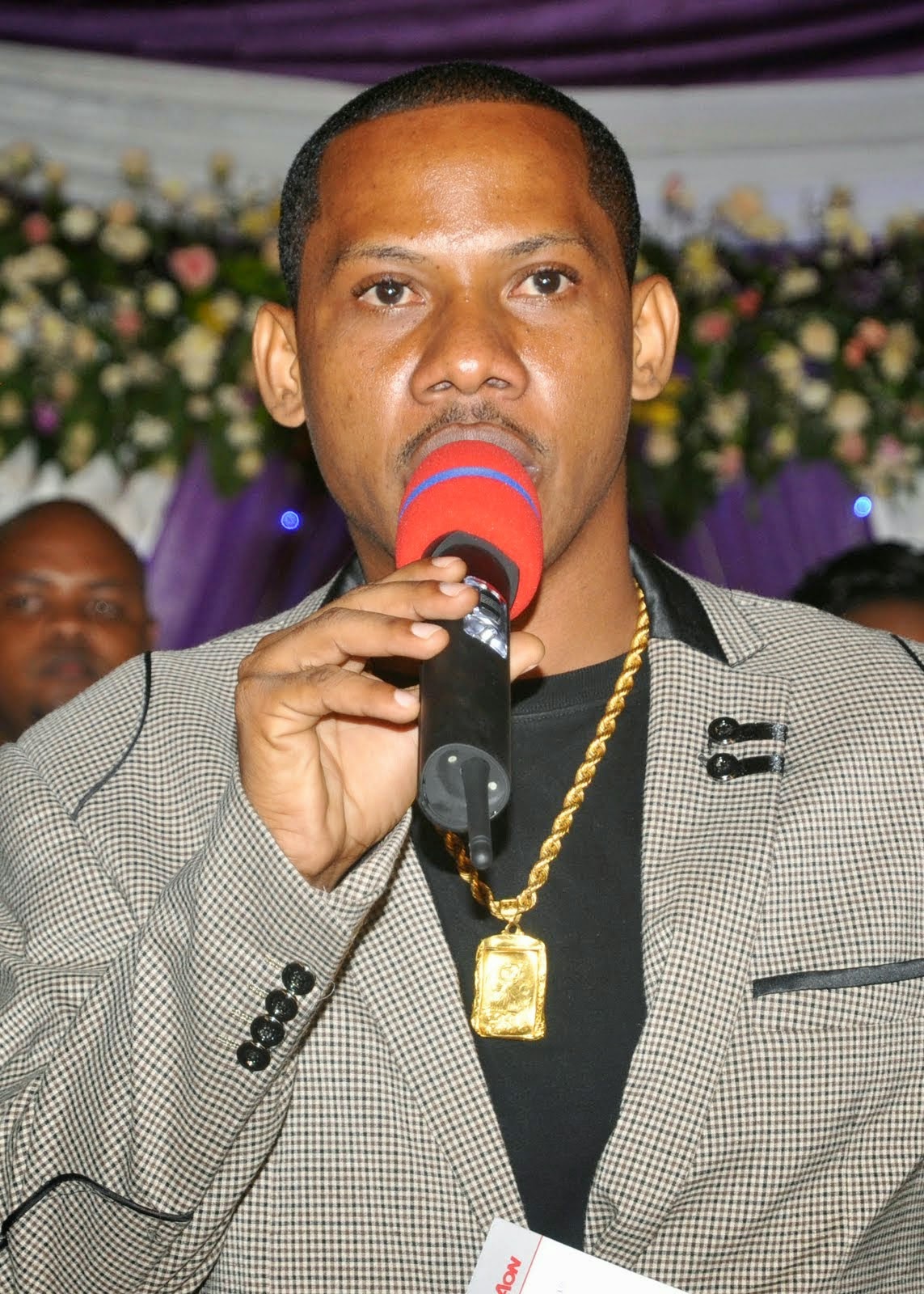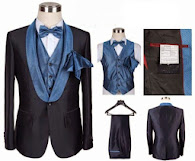Kwa wale wasiofahamu kuhusu wedding favors, hizi ni zawadi anazotoa bw.& bibi Harusi siku ya Harusi yao. Wewe kama Bibi au Bwana Harusi unashauriwa kuwa mbunifu sana katika kufanya machaguo ya zawadi hizi, na picha zifuatazo ni aina mbalimbali za zawadi hizo.
In a traditional African weddings the bride and groom’s families play a central role. Since marriage operates more as a union of families (a theme that resonates in many African and Asian cultures), parent’s opinions are heavily weighed. This instigates a lapse of time between the proposal and its acceptance. However, there is no time wasted once the groom receives approval to wed his bride. This is why the engagement and wedding ceremony are “one and the same.”
The Proposal: Marriage chatter amongst the bride’s family begins when the groom initiates the knocking on the door ceremony or “Kokooko.” This ceremony can be summarized by the three “p’s”: prayer, permission, and proposal. Accompanied by his father and other elder family members, the groom travels to the bride’s home. He brings gifts of liquor that are used for libations, prayer, to their ancestors and God. After, a representative for the groom is granted permission to state the intention of their visit; he announces the groom’s marriage proposal. Occasionally if little knowledge of the groom is known they will ask him back for what can be compared to: an interview. The bride’s family then prepares a “bride piece,” or list of gifts that the groom must provide as a testimony of his ability to take care of their daughter.
The Wedding Ceremony/Engagement: Fashioned in a grand boubou or dashiki,Khanga, the groom returns to the bride’s home with the detailed gifts and knocking fee or “dowry.” Upon the opening prayers, the bride and groom’s wedding guests are seated on opposite sides of the room facing one another. An elder is selected as the master of ceremony who assists with the introduction and presentation of the gifts to the bride’s family. Even though the bride is absent for these initial exchanges, she will give the last consent to the marriage. Once the family has accepted, the bride enters the space in a beautified two-piece outfit with a headpiece designed to compliment her skirt and buba. The father of the bride asks the bride three times if she agrees to marring this groom. After repeating yes, the groom then slides the wedding ring on her finger. He kisses and embraces her with affection. The ceremony continues with elders presenting the newlyweds with gifts such as a bible and a tidbit of knowledge. Modern day trends have inspired the church ceremony that occurs approximately a week after the traditional wedding ceremony (described above).
The Reception: What has stood the test of time is the huge celebration after the wedding ceremony. Everything contributes to the energetic rhythm of the party, beginning with the never ending guest list. A formal invitation is not a necessity, for it is extremely common for a guest to hear about the wedding through word of mouth. From the guests to the bridal party, everyone is robbed in vibrant colors. Even though Aso-oke,khanga and Adinkra,kitenge are familiar cloths to wear, the most popular fabric chosen is kente in Ghana,khanga and Kitenge in Tanzania. Additionally, a standard practice involves catering the event with chicken and goat – popular meats dishes served at celebrations. Great volumes of praise and worship combined with speeches and dancing to drum based music circulates until the reception reaches its end.
I thought that I was somehow more qualified than my high school friends to take this position of wife. And I thought that men would be quickly able to see how qualified I was with my wife résumé.
That’s not how life went. Surprise, surprise, I had a lot of learning to do. And at thirty years old, I’m single and I’ve never been married. (Engaged once, and that was a huge mistake. The relationship was terrible and I rushed it because of wanting the wedding.)
For years now I have listened to the messages of society about how a woman’s worth is directly tied up in her marital status. I try not to believe it, but it’s hard not to. It’s everywhere I turn. From the Huffington Post publishing an article claiming that if you’re not married by thirty the reason is you must be a bitch, to my mom’s friends gossiping about why someone is still single. “She cared about her career too much.” “She shouldn’t have wasted time with that man who wasn’t going to commit.” Everyone has an opinion about what a girl has done wrong to end up thirty and unmarried.
All that pressure and emotion is extremely present when going to friends’ weddings. I adore my friends, I’m delighted for them when they get engaged and married. That doesn’t make it easy for me, though. When I watch a particular wedding show about difficult brides (and I do, because hey, whether I’m engaged or not, I love weddings. There’s a reason I’m here at this site!), one of the things that surprises me is when the brides are upset with their bridesmaids for not becoming perfect robot wedding helpers without their own lives. The brides become outraged at their friends for being in the hospital or having a relative die. I think brides need to remember that their friends are not going to behave perfectly. They’re going to be themselves.
But more than that, they are going to be dealing with some very strong emotions of their own during this magical day of yours. It’s not because they are selfish, it’s just what weddings bring up for some of us.
When my closest friend from home called me to tell me she was engaged, I felt two things at once. Very happy for her and devastated that her new husband was “stealing” her from me. I mourned the loss of being the closest person in her life. I felt like her wedding was a ceremony to replace me. In a lot of ways, it was.
A friend and I who grew very close in college had a friendly competition about our guys, guessing which one would propose first. My guy and I split up soon after college, hers proposed some years later. She was marrying the first man she ever kissed and it was such a romantic notion that I couldn’t help but be struck by my own failure. I would not marry the first man I kissed. I had not chosen well. She was getting the fairy tale that I wanted for myself. I didn’t begrudge her having it, but it didn’t make it any easier to suppress my own longing and disappointment.
I’ve been to many, many weddings. At most of them I know at least a few people are gossiping about me, wondering why I didn’t bring a date or when I’ll follow suit. I want them to be proud of me, to see me as a success, but no matter what I do, without a wedding I’ll always be tainted by failure. Some people just think that way. And I get to see them every time there’s a wedding.
I know that this day is about you and your beloved, about the love that you share and celebrating that love. I am loving seeing you happy. I’m doing my best to support you through the stress and the fears and the big changes. At the same time I’m battling my own inner war. I can’t make that go away. As much as I love weddings, they are always going to remind me of what I’m missing, of what I wanted for myself that I’ve not been able to get (when everything else I want is something I work toward and achieve). They fill me with jealousy, love, well wishes, remorse, frustration, appreciation, and disappointment.
You want your guests to have a good time, but that isn’t entirely in your control. You can throw a great, fun party, but you can’t change the inner turmoil that some people will be experiencing. I still love celebrating my friends’ weddings with them, no matter what painful feelings might poke at me during the experience.
I don’t want to bring you down or make you feel bad. I just want to say that your responsibility is to enjoy your wedding and to celebrate how much you love your spouse. Your friends will be experiencing different things than you are, but it’s not your job to fix that. Yours is to just be happy so that we can feel relieved knowing that real love is possible in this world.
Laura, Primary Teacher & Maxwell, Grant Consultant * Photographer: Jonas Seaman (APW Sponsor) * Soundtrack for Reading: “Sea of Love” by Cat Power *
Other cool stuff we should know about: The beach wedding was going to happen, rain or shine, and it rained—hard! Friends were sent to town to buy as many umbrellas as they could find. The bride was ushered in on a boat, while the groom and guests waited on the beach. The ceremony was short, sweet, and sometimes funny. It was very personal as it was written together with the bride and groom’s BFF, who ordained the ceremony as well. The vows were super personal, handwritten notes of promise. Friends played and sang “Sea of Love,” and another friend read “Song of the Open Road,” by Walt Whitman.
Subscribe to:
Posts (Atom)














































































